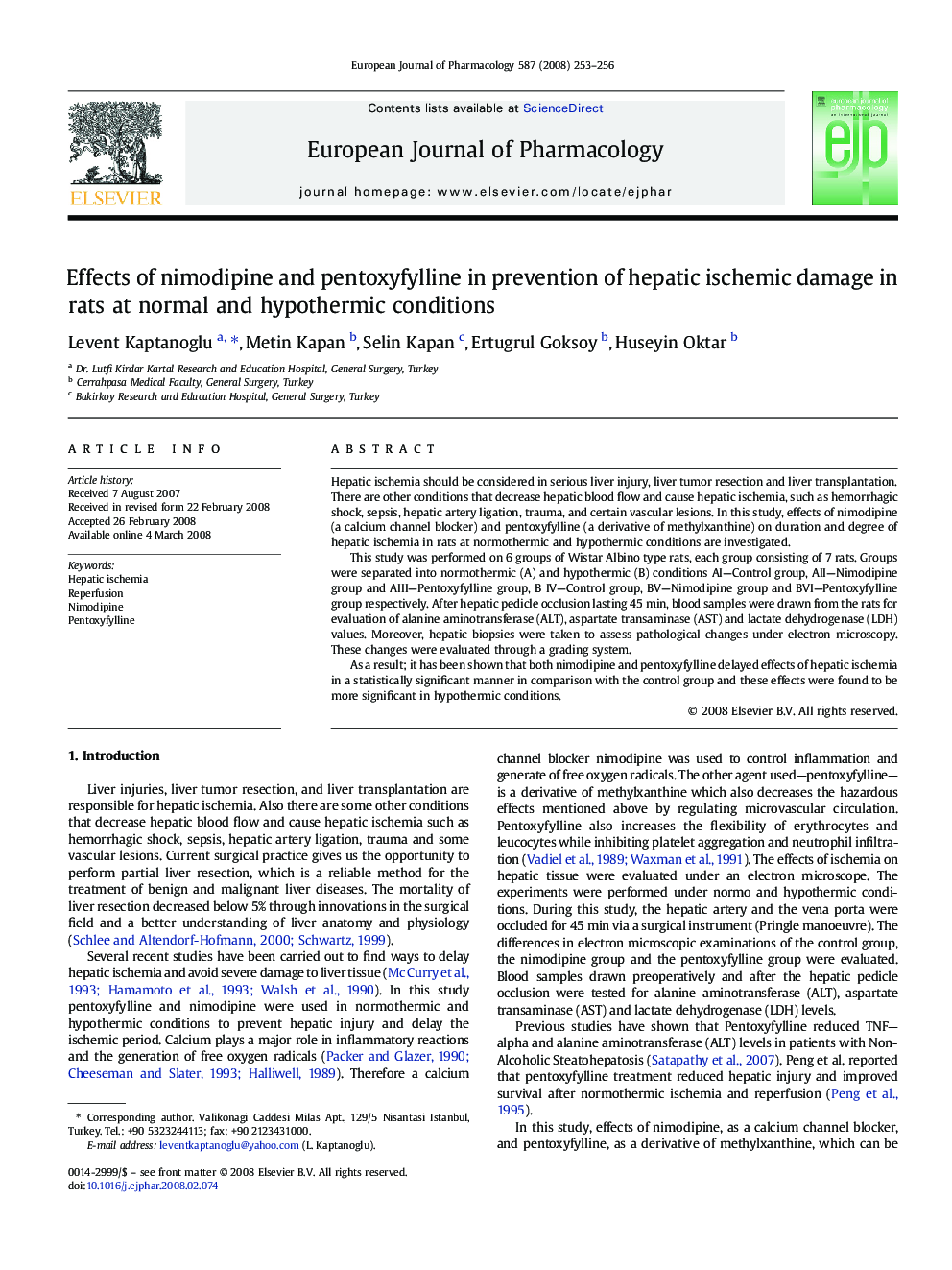| Article ID | Journal | Published Year | Pages | File Type |
|---|---|---|---|---|
| 2535352 | European Journal of Pharmacology | 2008 | 4 Pages |
Hepatic ischemia should be considered in serious liver injury, liver tumor resection and liver transplantation. There are other conditions that decrease hepatic blood flow and cause hepatic ischemia, such as hemorrhagic shock, sepsis, hepatic artery ligation, trauma, and certain vascular lesions. In this study, effects of nimodipine (a calcium channel blocker) and pentoxyfylline (a derivative of methylxanthine) on duration and degree of hepatic ischemia in rats at normothermic and hypothermic conditions are investigated.This study was performed on 6 groups of Wistar Albino type rats, each group consisting of 7 rats. Groups were separated into normothermic (A) and hypothermic (B) conditions AI—Control group, AII—Nimodipine group and AIII—Pentoxyfylline group, B IV—Control group, BV—Nimodipine group and BVI—Pentoxyfylline group respectively. After hepatic pedicle occlusion lasting 45 min, blood samples were drawn from the rats for evaluation of alanine aminotransferase (ALT), aspartate transaminase (AST) and lactate dehydrogenase (LDH) values. Moreover, hepatic biopsies were taken to assess pathological changes under electron microscopy. These changes were evaluated through a grading system.As a result; it has been shown that both nimodipine and pentoxyfylline delayed effects of hepatic ischemia in a statistically significant manner in comparison with the control group and these effects were found to be more significant in hypothermic conditions.
